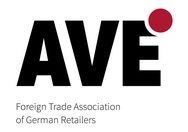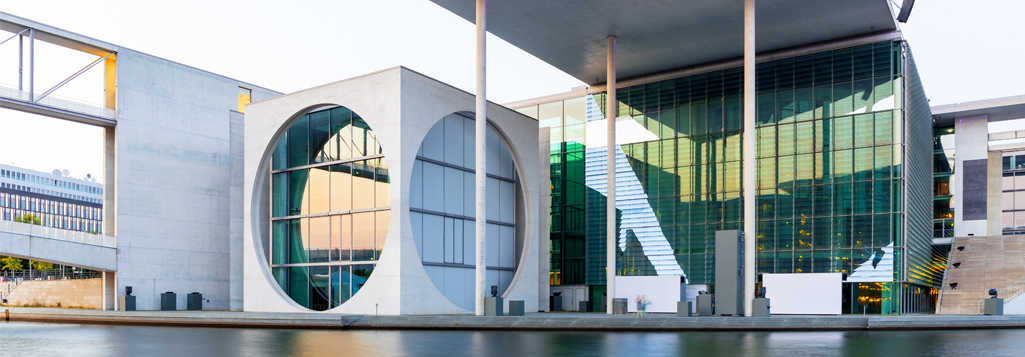AVE Timeline
19 December 1952
Außenhandelsvereinigung des Deutschen Einzelhandels (AVE) was founded in Cologne in 1952 to represent the foreign trade interests of the German retail trade sector – one year after the Federal Republic of Germany acceded to the General Agreement on Tariffs and Trade (GATT).
Early 1953
AVE starts its work – initial priorities are complicated import procedures, exchange controls, turnover equalisation tax and the introduction of an ad valorem customs duty.
1961
Adoption of the German Foreign Trade and Payments Act – this enshrined in law the principle of freedom in all external economic flows.
1977
On the initiative of AVE, the European Foreign Trade Organisation (FTA) is founded in Brussels. In this way, AVE lays the foundation for stronger representation of trade interests at European level.
1982
The textile and clothing sector increasingly plays a dominant role in AVE’s external economic policy work due to the growth in trade-policy regulation.
1984
AVE’s finding that protectionism originating in the EC costs DM 300 billion a year triggers a serious debate on the direction of trade and agricultural policy in the European Community.
1996
For the first time, AVE addresses the issue of social standards – especially in the area of child labour. The so-called “new issues” were negotiated at the first WTO Ministerial Conference in Singapore.
November 1999
AVE Presidency adopts a code of conduct for the observance of social standards, based on the core labour standards on the International Labour Organization (ILO).
From 2000
One year after the AVE Declaration on Procurement and Conduct Rules for Observance of Social Standards, AVE takes concrete steps to develop an AVE model for implementation of the Declaration in supplier countries with involvement of the Otto Group.
January 2001
AVE is a founding member of the Roundtable “Code of Conduct” initiated by the Federal Ministry for Economic Cooperation and Development.
November 2002
The AVE social responsibility sectoral model is implemented. The main purpose is to bring about a sustained improvement in working conditions in firms supplying the retail sector, especially in emerging and developing countries.
March 2003
The Business Social Compliance Initiative (BSCI) is founded in Brussels, under the umbrella of FTA. It builds on the AVE sectoral model, while AVE and its members are essential players in BSCI.
Early 2004
AVE argues in favour of an unconditional removal of decades-old textile quotas in the High Level Group for Textiles and Clothing coordinated by the European Commission. Quotas are removed with effect from 1 January 2005.
Summer 2005
AVE protests successfully against the textile quotas newly reinstated vis-à-vis China by the EU. At the last minute, it is possible to avert massive damage to the German fashion trade.
January 2008
Remaining textile quotas vis-à-vis China are definitively scrapped. This is also the result of the call backed by AVE for further liberalisation of world trade.
2012
Although AVE continues to champion multilateralism in world trade, it endorses and helps to shape the EU’s discussions with important trading partners, primarily in the ASEAN region, on conclusion of bilateral trade agreements – against the background of an impasse in the Doha Round.
Spring 2013
The collapse of the Rana Plaza complex in Bangladesh brings the issue of working conditions in supplier countries into the spotlight. This poses considerable challenges for AVE, which it meets with targeted steps for an improvement in fire and building protection.
January 2015
AVE moves its head office to Berlin. With AVE’s move to Berlin in early 2015, the association is present at the heart of national political action – with direct access to ministries, parliamentarians and embassies.
Mai 2016
The EU customs code enters into force. AVE was involved in formulation of this first systematic European customs rulebook.
September 2017
In September 2017, Handelsverband Deutschland (HDE) took over management of Außenhandelsvereinigung des Deutschen Einzelhandels e.V. (AVE). Cooperation between the two associations was realised with the objective of enabling even more effective representation of the sector on external economic and development themes and to organise activities for sustainable international supply chains more efficiently.
June 2021
Prof. Dr. Tobias Wollermann, from the Otto Group, succeeds Dr. Matthias Händle as President of the Foreign Trade Association of German Retailers (AVE e.V.), who is handing over this honorary position after 13 years of successful leadership.
“An active external economic policy for companies which operate around the world – helping to open markets and further develop promotion of foreign trade – can and will mobilise additional growth potential and create a further condition for additional jobs. In this important aspiration for business policy, it is good to know that Außenhandelsvereinigung des Deutschen Einzelhandels (AVE) is on our side.”
Wolfgang Clement
Former Federal Minister for Economy and Employment
“Systemic challenges, such as combating human rights violations and protecting the environment, can only be solved in a sustainable manner by working together. Hence, we welcome the efforts at European and global level to achieve this noble goal.”
Prof. Dr. Tobias Wollermann
AVE President

